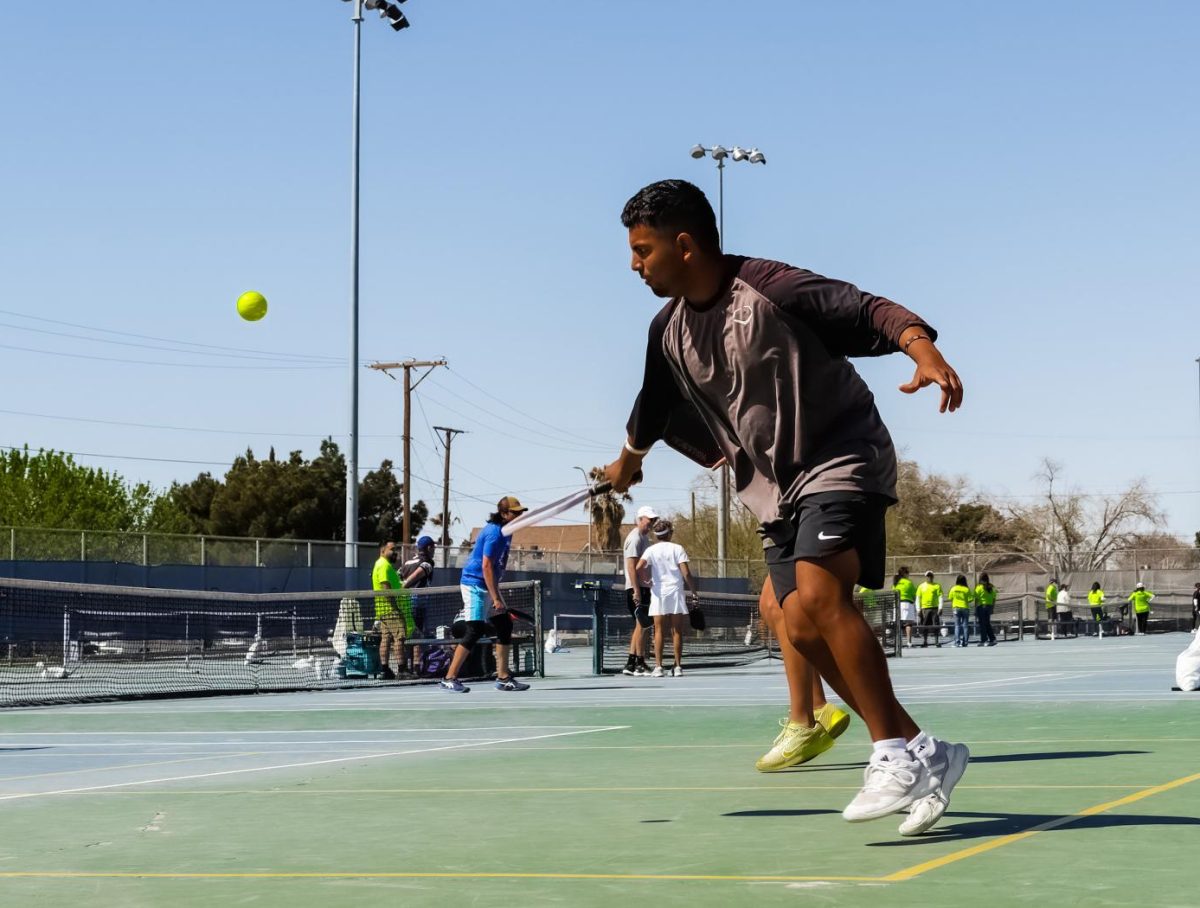The UTEP Athletic Department and other campus organizations have used the recent domestic violence problems in the National Football League as a chance to reinforce the standards that UTEP students and student athletes should be held to.
If you have turned on the television or radio in the last month or so, you have most likely heard the news coming out of the NFL. The news was not as much about the start of a new football season as the NFL and Commissioner Roger Goodell probably would have liked. Prior to the season getting underway, a video was released that showed Baltimore Ravens’ running back Ray Rice dragging his then fiancée’s unconscious body out of a hotel elevator. Rice was suspended two games after the league had reviewed the circumstances.
Soon after Rice’s suspension was finalized, Denver Broncos’ wide receiver Wes Welker received a four game suspension for testing positive for amphetamines. Many people saw this discrepancy in suspension length as a lack of concern on the NFL’s part in the area of domestic violence. According to a USA Today report, 50 domestic violence cases have been pursued against NFL players since September 2006.
These recent high-profile cases have clearly had a negative affect on the NFL’s image in the eyes of the general public. However, they have also served as the catalyst for a dialogue on domestic violence in general. Senior Associate Athletic Director Julie Levesque is very confident in the quality of the training that UTEP student athletes are receiving in this area.
“As each year goes by, rules and laws change, we update it every summer. I actually work with the office of Equal Opportunity in making sure all of our policies and procedures are current with the laws and the school policies and the UT System policies,” Levesque said. “We also get samples from the UT System. We send them our handbook and they send it back with suggestions. Everything’s current in there.”
Where a regular student, one who is not here on athletic scholarship, would attend the normal new student orientation, student athletes’ more complicated schedules often demand that they participate in a separate orientation. The university does everything it can to insure that athletes receive plenty of education in the UTEP code of conduct.
“We bring in a lot of people. We bring in the dean of students and Ryan Holmes, the dean for the conflict resolution Office,” Levesque said. “They come and they speak to all of our new students transfers
and freshmen.”
Many students feel like all of this extra attention paid to the athletes’ conduct is worth it. Eileen Alvarez, a freshman nursing major, thinks that athletes should be held to a higher standard.
“Us, as students, we look up to athletes because we go and support them,” Alvarez said. “It would be bad for us to be supporting them for committing domestic violence.”
Leslie Bernal, a junior English and American literature major, said she believes it should not matter whether you are a superstar or any other athlete.
“They shouldn’t just have big punishments for big athletes,” Bernal said. “It should be the same as ordinary athletes. The same as any other student. You represent UTEP.”
Although the NFL eventually changed Rice’s two-game suspension into an indefinite one, the more harsh punishment may have come a little too late for outside observers. Perhaps it is this fear of losing respect in the eyes of the public that has led many UTEP students like Cesar Vazquez, a freshman mechanical engineering major, to expect harsh punishments if a UTEP athlete were arrested.
“They definitely should not be on the team,” Vazquez said. “Not sure how far I’d go. I don’t know what the story is to it. Definitely some serious punishment. Expulsion should definitely be an option.”
There have not been any major issues involving an athlete and domestic violence in the recent past. That has not stopped Athletic Director Bob Stull from addressing current events in meetings with all of the head coaches, according to Levesque.
“Bob (Stull) mentioned something in the last coaches’ meeting referencing Ray Rice—basically reminding everyone,” Levesque said. “Our coaches take things very seriously and understand. We’re trying to develop the students to be really good people when they leave here.”
If there is a silver lining to be found in the NFL’s recent issues, it is that people are talking more about domestic violence across the country. Many students have only recently begun to consider what the university’s policy on domestic violence is and what they could do if they or someone they know were to become a victim.
The Office of Student Conduct and Conflict Resolution presents information at each new student orientation in reference to situations like domestic violence. However, many students remain unsure on what they should to do if they were to become or know about a victim. Arthur Gibbons, a freshman business major, has considered what he would do if someone he knew was a victim of domestic violence following his freshman orientation.
“Go talk to the UTEP police or maybe even an instructor,” Gibbons said.
Student athletes have participated in events on campus such as the “Take Back the Night” movement in order to raise awareness for sexual assault and domestic violence. OSCCR also works diligently to promote domestic violence prevention c
auses across campus.
At 6 p.m., Oct. 8 at the Blumberg Auditorium at the UTEP Library, the film “Lives For Sale: Human Trafficking” will be shown along with an exhibit that includes images of migrant women and domestic violence, developed by Eva Moya, assistant professor of social work. OSCCR is also working with the Student Engagement and Leadership Center to build a team of UTEP men, who would like to “Walk a Mile in Her Shoes” to raise awareness for sexual assault and family violence. The walk will take place at the Union Plaza downtown on Oct. 16. Interested participants can register in room 106 in Union West.
If you or someone you know needs help, OSCCR, located at room 303 in Union East, is available to all UTEP community members. For more information, call 915-747-8694. Other resources include the University Counseling Center, which may be reached at 915-747-5302, and the University Police Department, which may be reached at 915-747-5611.
Jason Green may be reached at [email protected].





